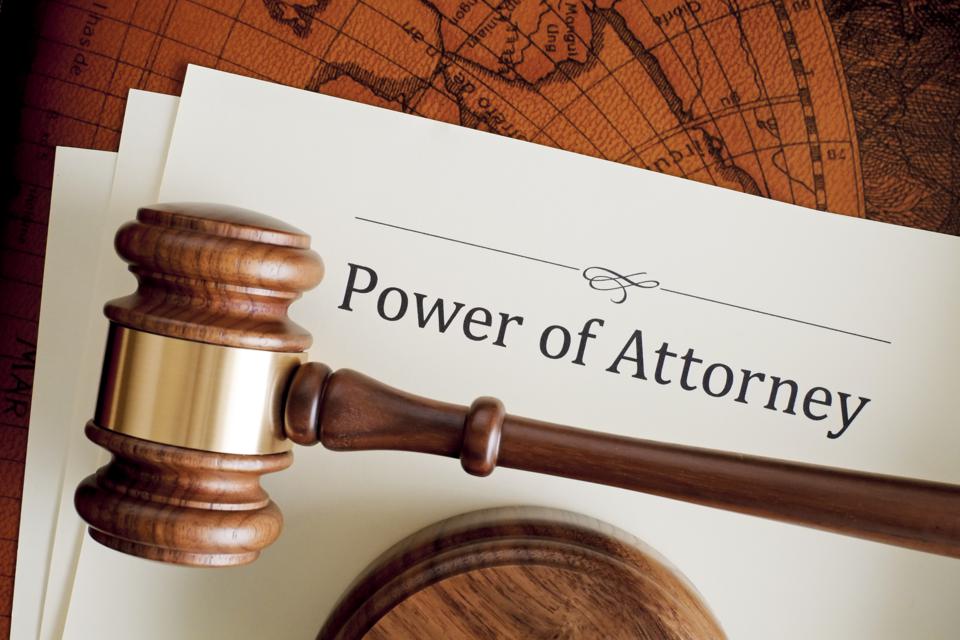What is Lasting Power of Attorney (LPA)?
This article explains what an LPA is, reasons for getting an LPA, difference between LPA and Will, power of the donee, how to apply for an LPA, and How an LPA is used in Singapore
A legal document called a Lasting Power of Attorney (LPA) allows adults 21 years old and older to appoint one or more persons to make decisions for them should they at some point become mentally incapacitated.
The person executing the LPA is called the “donor” and the person(s) acting on their behalf is called the “donee.”
If you are considering making an LPA it’s important that the donee is someone you have complete trust in, someone that you can depend on to competently act on your behalf. Having an LPA in place is vital if you provide the sole support of your family or have chronic health problems.
As of 31 March 2018, more than 43,000 people in Singapore had applied to create an LPA. It’s important to understand that there are all kinds of Power of Attorneys, but the one that takes effect in cases of a loss of mental capacity is the Lasting Power of Attorney (LPA).
Table of Contents
What Determines Whether Someone Lacks Mental Capacity?
Reasons for Getting a Lasting Power of Attorney
A Lasting Power of Attorney is Different Than a Will
Who is Allowed to Be a Donee in Singapore?
The Donee of an LPA Has Certain Duties
Restrictions by Statute on the Power of a Donee
Applying for an LPA in Singapore
How the Lasting Power of Attorney is Used in Singapore
Revoking a Lasting Power of Attorney
Lifting a Lasting Power of Attorney
What Determines Whether Someone Lacks Mental Capacity?
Under Singapore’s Mental Capacity Act, someone lacks mental capacity if he/she is unable to make decisions for him/herself in relation to a matter due to an impairment of, or a disturbance in how his/her mind or brain functions.
It makes no difference whether this impairment or disturbance is temporary or permanent.
Someone could lose mental capacity due to suffering a stroke, getting dementia, or from head trauma resulting from an accident.
Reasons for Getting a Lasting Power of Attorney
Here’s why people get an LPA:
1. To Safeguard the Donor’s Interests Throughout his/her Lifetime
With an LPA a person is able to make plans and choices for his/her future while he/she still has the mental capacity to do so. This means that an LPA is helpful to everyone, not just the elderly. People of any age can become incapacitated due to an illness or accident.
Unfortunately, young healthy individuals can have an accident while playing sports or while driving a car that can reduce them to a vegetative state. Should this happen, they would be unable to manage his/her affairs, whether personal or financial.
In a situation like this, any Will that they may have prepared would not take effect because they are still alive. This is why making an LPA ahead of time is important. This document would protect his/her interests should they lose mental capacity.
Someone healthy might decide they do not need an LPA because they have a Will. However, there is no way to predict the future, which is why it’s important to be prepared in case of a tragedy striking, causing them the loss of mental capacity.
2. To Help the Donor’s Family Avoid Lengthy Court Proceedings
If someone were to suddenly lose their mental capacity, his/her family would not be able to make decisions on their behalf or access their money. These rights are not automatically given to family members.
Unless there is an LPA in place, his/her family members would be faced with having to apply to court for an order to administer the affairs of a person who lacks mental capacity. The resulting court order would have the court appointing someone to be the court-appointed deputy. Their job would be to manage the incapacitated person’s matters, including their welfare, finances, and/or property.
With an LPA in place, a court order would be unnecessary, saving time and money. Loved ones could avoid the stress and inconvenience, not to mention the financial burden of paying for their relative’s care plus the cost of obtaining the court order.
Furthermore, there might be arguments between family members as to who should be the deputy of the relative who had lost their mental capacity.
Disputes like these can only be settled in court, which adds further inconvenience and stress for the family.
3. Allows the Donor to Appoint a Donee of Their Choice
When you make an LPA, you are able to appoint a donee of your choice and this person has the right to automatically step in and act on your behalf once a doctor certifies that you have lost your mental capacity.
On the other hand, if you do not have an LPA in place and you lose your mental capacity to make decisions, someone who would not necessarily be your choice could apply to the court:
- To have the court give them the authority to make decisions for you as your deputy; or
- To have the court appoint one or more people to be your deputies and make decisions for you
Should this happen, there is always a chance that the donee who is making all the decisions on your behalf would have no idea what your preferences are or what you believe or would be interested in. Under these circumstances they may not be able to act in your best interests.
4. Allows the Donee to Quickly Start Taking Care of the Donor
With an LPA already in place when the doctor certifies that you lack mental capacity, your donee can start managing your welfare, finances and/or property right away. This avoids your family having to wait for the court to appoint a deputy before your affairs could be handled.
For example, if your donee is immediately able to make decisions regarding your finances and property, they could access your insurance payouts and bank accounts to pay for your medical care and ongoing maintenance.
If your LPA only authorises your donee to make decisions about your personal welfare, he/she would not be allowed to make decisions about your finances. This means they would have to apply to the court for this authorisation.
5. Donors are Allowed to Appoint Professional Donees
The Mental Capacity Act has been amended to give donors the right to appoint professional donees if they wish. Therefore, people who are single, divorced, or those with no close friends or family they trust now have the right to appoint one or more professional donees.
Under current law, only people working in certain professions, such as accountants, lawyers, healthcare workers and social service professionals can apply. However, they must meet certain criteria and pass a certification course before they can be registered as professional donees or deputies.
OPG chose these particular professions because the people working in them have the necessary experience and skills to competently make decisions on behalf of people who are mentally incapacitated.
People who have a family also have the right to choose a professional donee instead of a family member if they wish. They may decide this is a better option, especially if complicated medical instructions must be followed for their care, they have a lot of assets that would be best managed by professionals, or if they want to avoid their family members arguing about who should be their donee.
6. Obtaining and Registering an LPA is Easy and Affordable
Registering an LPA is easy and inexpensive when compared to your family having to apply to the court to appoint a deputy after you’ve lost your mental capacity.
However, it’s important to know that LPAs in Singapore cannot be enforced in other countries, nor are theirs recognised in Singapore. Therefore, if you spend a lot of time abroad and/or own property situatied in other countries, it would be smart to have an LPA, or a similar legal document, in place in those countries.
A Lasting Power of Attorney is Different Than a Will
A Will goes into effect once the Will-maker dies. An LPA goes into effect when the donor loses his/her mental capacity.
An LPA does not spell out how the donor’s assets are to be distributed upon his/her death. This is spelled out in his/her Will, or if there is no Will, according to the laws of intestacy.
Who is Allowed to Be a Donee in Singapore?
Donees can be:
-
Professional Donees
These are individuals or organizations that are paid to act as a donee. They could be social workers, accountants or lawyers who are not related to their donor by either blood or marriage.
Professional donees are only allowed to manage the donor’s medical care, finances, and property if they have any.
-
Non-professional Donees
These are people who take on the responsibility of being a donee without being paid. They must be at least 21 years of age.
But people with undischarged bankruptcies do not qualify because they cannot be trusted to manage the donor’s financial affairs or property.
The Donee’s Powers
As has been discussed, the donee has the authority to make decisions regarding the donor’s personal welfare, financial affairs and/or property. These decisions have to do with how the donor is to be taken care of and where they will live.
The LPA can also specify that your donee has permission to access your bank accounts to take care of your needs.
The Donee of an LPA Has Certain Duties
The donee, exercising the powers bestowed on him/her by the LPA, is required to act at all times in the best interests of their donor. You can find the definition of the term “best interests” in the Mental Capacity Act: Section 6.
The Office of the Public Guardian (OPG) is the governmental agency responsible for carrying out the Mental Capacity Act. This is the agency that investigates instances in which the donee may not be acting in the best interests of the donor.
Also, there can be wording in the LPA that spells out conditions or restrictions that limit the donee’s power.
When the donor recovers and his/her mental capacity is restored, the donee should allow the donor to resume managing his/her own affairs. However, the LPA would still be valid.
Restrictions by Statute on the Power of a Donee
The Mental Capacity Act: Sections 13 and 14 contain a number of conditions and restrictions that limit a donee’s authority, which relate to:
- Physically restraining their donor
- Healthcare or the medical treatment of their donor
- Nominations pertaining to the Insurance Act
- Executing the Will of their donor
- CPF nominations
- Handling of their donor’s property; and
- Making gifts of their donor’s property
Applying for an LPA in Singapore
There are 3 steps that need to be taken when you apply for an LPA in Singapore:
- Complete the correct form
- Get the form certified
- Register your LPA application
1. Complete the correct form
The OPG has 2 different forms:
- Form 1: This is the standard form, granting general powers. But it spells out some basic restrictions that apply to donees.
- Form 2: This form is used for donors who want to customise their donee’s powers. The donor will have to hire a lawyer to spell out the specific powers in a carefully worded annex to be attached to Form 2. If you need a referral to an LPA lawyer, we can help.
You are welcome to download the form you need from the link above or you can go online to the OPG website. They are both of the same documents.
2. Get the form certified
Once you’ve completed either Form 1 or 2, you must get the form certified by a certificate issuer.
This process certifies that you understand what the LPA is for and its consequences. Having it certified also ensures that no undue pressure or fraud was used to get you to make the LPA.
Your certificate issuer can be a psychiatrist, a practising lawyer, or an accredited medical doctor. If you are customising your donee’s powers using Form 2, the lawyer who spelled out the LPA’s carefully worded powers will probably certify your LPA.
Certificate issuers usually charge a fee for this service. To find a certificate issuer you can go online to the OPG website.
Register your LPA application
The last step in the process is mailing your LPA application (within 6 months of you signing it) to the OPG for registration. The mailing address of OPG is:
20 Lengkok Bahru #04-02
Family @ Enabling Village
Singapore 159053
You will then be contacted by OPG for payment and other remaining details.
If the OPG receives no valid objections to your LPA within the required 3-week waiting period once your LPA application has been accepted by the OPG, it will be registered.
Since 1 August 2019, all new LPA applicants have been receiving a soft copy of their LPA. You may request a hard copy of your LPA, which is certified as a true copy, for a fee of $25.
The OPG has temporarily waived the $75 LPA application fee for Singapore citizen applicants using Form 1, but not for PRs or foreigners, until 31 March 2023. The application fee for Form 2 is $200.
How the Lasting Power of Attorney is Used in Singapore
1. A medical doctor must certify the mental condition of the donor
To activate the LPA, the donee must take the donor to a registered medical doctor to get a certificate that certifies the donor’s mental health condition. This certificate is called the “Medical Report Form for LPA Transactions” and can be obtained online from the OPG website.
You must have the LPA with you when you take the donor to the doctor.
2. Approach the appropriate institutions for the transactions you intend to carry out on behalf of your donor
For example, if you are trying to manage your donor’s bank account(s), you need to go to the donor’s bank.
When you’re at the bank, you will be asked to show your LPA document (either a soft copy, a hard copy, or a certified true copy from the OPG).
You may also be asked for other documents, depending on that institution’s internal procedures for activating LPAs.
These could be the following:
- Your donor’s ID, (e.g., NRIC)
- Your completed Medical Report Form for LPA Transactions
It would make sense to call ahead to find out which documents to bring before you go there.
Banks often require a medical report on the donor that was done within the last 6 months. If the donor’s mental incapacity is permanent, you may not be required to bring a recent medical report if the report you have says that the donor’s lack of mental capacity is permanent.
3. The institution must verify that the LPA is valid
Once the institution receives the documents they require, they will contact the OPG to make sure the LPA is valid.
If the OPG confirms that the LPA is valid, the institution will let you carry out transactions for the benefit of the donor.
Revoking a Lasting Power of Attorney
An LPA can be revoked under certain conditions, which are spelled out in the Mental Capacity Act: Section 15. When the donor recovers and his/her mental capacity is restored, he/she is allowed to revoke the LPA.
For more information, we invite you to read our article covering the grounds and procedures for revoking an LPA.
Lifting a Lasting Power of Attorney
Any person, like one of the donor’s family members, may apply to have the court lift the donor’s LPA. The court in Singapore has the power to lift or revoke an LPA under the following circumstances:
- When undue pressure or fraud was used to persuade the donor to make the LPA; or
- When the donee behaves, starts behaving or expresses a desire to behave in a way that would not be in the best interests of the donor or would violate his/her authority.
If an LPA donee mistreats the donor, he/she could be held liable and incur serious sanctions, including a fine and imprisonment, as per the Mental Capacity Act: Section 42.
At Pinnacle Estate Agency, we strongly believe in sharing our real estate knowledge to the public. For more content like this article, check out our Singapore Property Guides.











